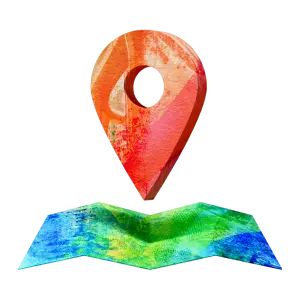Indonezijska rupija (IDR)
Rupija je službena valuta Indonezije. Valutni kod rupije je IDR, a njen je simbol Rp. Njen konverzijski faktor ima 6 znamenki i ona je fiat valuta. Najčešće ispisivane novčanice na sebi imaju antičke vođe Indonezije, uključujući i dva sultana. Novčanice se općenito ispisuju u monokromatskim plavim i crvenim bojama.
Naziv valute
Indonezijska rupija
Simbol valute
Rp
IDR Tečajna lista
| USD | INR | EUR | SGD | AUD | CAD | GBP | HKD | |
|---|---|---|---|---|---|---|---|---|
| Iz IDR | 0.00006 | 0.00534 | 0.00006 | 0.00008 | 0.00010 | 0.00009 | 0.00005 | 0.00048 |
| U IDR | 16172.50000 | 187.34000 | 16926.90000 | 11994.30000 | 10168.50000 | 11238.30000 | 20135.60000 | 2075.63000 |
Čuvajte se loših tečajeva valuta.Banke i tradicionalni pružatelji usluga često imaju dodatne troškove koje prebacuju na Vas pomoću marže na valutni tečaj, Naša pametna tehnologija znači da smo mi učinkovitiji - što znači da Vi dobivate odličnu cijenu. Svaki put.
| Ime | indonezijska rupija (IDR) |
|---|---|
| Symbol | Rp |
| Minor Unit | Sen (No longer used in circulation) |
| Minor Unit Symbol | – |
| Notes Freq Used | Rp 1,000, Rp 5,000, Rp 10,000, Rp 20,000 |
| Coins Freq Used | Rp 100, Rp 200, Rp 500 |
| Central Bank | Bank Indonesia |
| Users | Indonezija |
Facts Table for indonezijska rupija (IDR)
The official currency of Indonesia, known as the rupiah (symbol: Rp; currency code: IDR), is managed and issued by Bank Indonesia. Its name originates from the Sanskrit term for silver, "rupyakam" (रूप्यकम्). Additionally, Indonesians sometimes colloquially refer to the rupiah in coins as "perak", which translates to "silver" in Indonesian. The rupiah is subdivided into 100 cents (Indonesian: sen), yet due to significant inflation, coins and banknotes denominated in cents have become obsolete.
Introduced in 1946 by Indonesian nationalists striving for independence, this currency replaced a version of the Netherlands Indies gulden, which was put into circulation during the Japanese occupation in World War II. During its initial stages, the rupiah was utilised alongside other currencies, including a fresh iteration of the gulden introduced by the Dutch. Previously, the Riau Islands and the Indonesian segment of New Guinea (Irian Barat) had their distinct versions of the rupiah, but these were integrated into the national rupiah in 1964 and 1971, respectively (referred to as Riau rupiah and West Irian rupiah).

Redenomination Proposal
An initiative to redenominate the rupiah has not yet undergone formal legislative consideration. Since 2010, Bank Indonesia, Indonesia's monetary authority, has consistently advocated for the removal of the currency's final three zeroes, asserting that such an alteration wouldn't impact its value and would streamline transactions. In 2015, the government presented a bill regarding the redenomination of the rupiah to the House of Representatives, but it hasn't been reviewed thus far. Reiterating this stance in 2017, Bank Indonesia Governor Agus Martowardojo mentioned that if the redenomination process commenced immediately, it could feasibly conclude by 2024 or 2025.

Existing Legal Tender
The current rupiah encompasses coins valued from Rp50 to Rp1,000 (though Rp1 coins remain officially recognized as legal tender, they are effectively deemed worthless and are not encountered in circulation), along with banknotes ranging from Rp1,000 to Rp100,000. As of May 3, 2023, with US$1 equating to Rp15,107.5, the largest denomination of Indonesian banknote holds an approximate value of US$6.62.